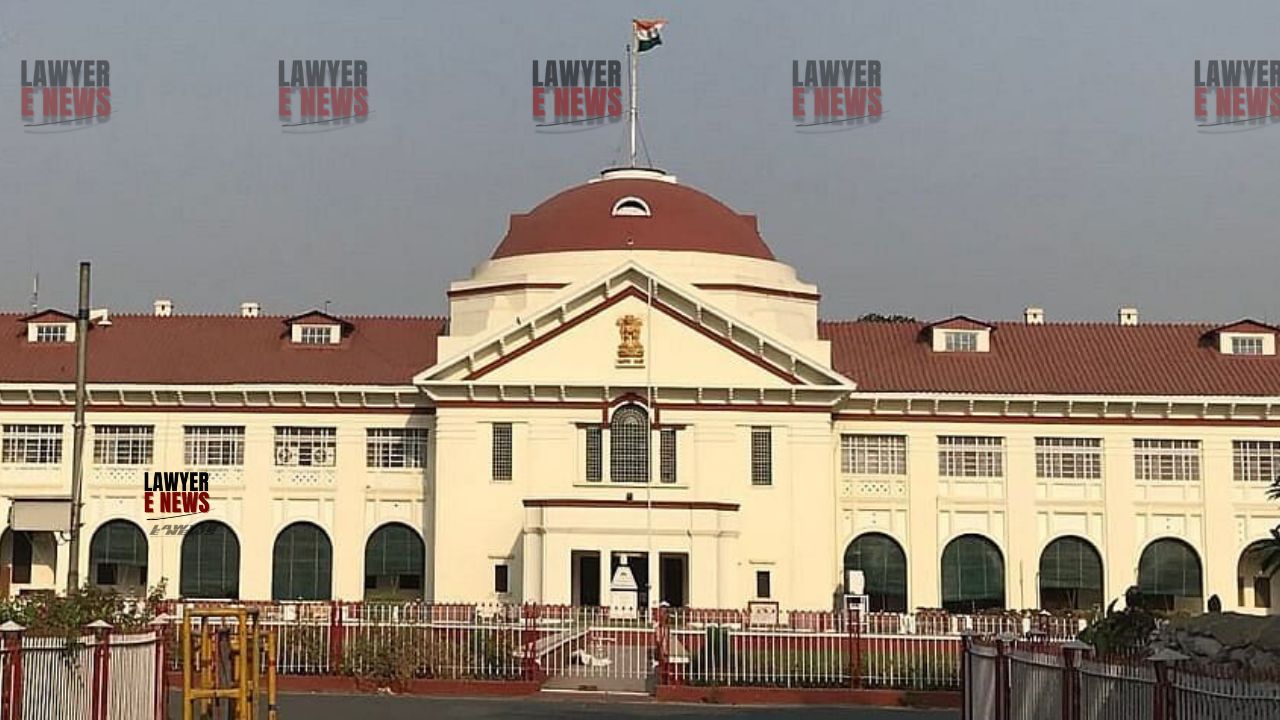-
by Admin
15 February 2026 5:35 AM



Patna High Court, comprising Justice P.B. Bajanthri and Justice Alok Kumar Pandey, delivered a significant ruling in the case of Pankaj Kumar Bazaz vs. Madhu Kumari. The Court upheld the dismissal of a divorce petition filed by the appellant, Pankaj Kumar Bazaz, on grounds of cruelty, adultery, and desertion. The Court found that the appellant's allegations were vague, unsubstantiated, and lacking any credible evidence. The appeal was dismissed, and the judgment of the Family Court refusing the divorce was affirmed.
"Divorce Cannot Be Granted Based on Vague and Unsubstantiated Allegations"
In its detailed judgment, the Court emphasized that for a divorce to be granted under Section 13 of the Hindu Marriage Act, 1955, the allegations must be specific and supported by evidence. The appellant failed to meet this burden of proof. The judgment underscores that "vague and bald statements without evidence cannot form the basis for a divorce decree" [Paras 14-20, 22-23].
The case originated from a divorce petition filed by Pankaj Kumar Bazaz in 2008, seeking the dissolution of his marriage to Madhu Kumari, which was solemnized in May 2004. The appellant alleged that his wife engaged in cruel behavior, had an adulterous relationship, and deserted him. He claimed that since April 2005, the couple had not cohabitated, and he sought a divorce on these grounds.
The Family Court of Samastipur had earlier dismissed the divorce petition, prompting the appellant to file an appeal in the High Court. Notably, during the pendency of the divorce proceedings, the appellant solemnized a second marriage after obtaining an ex parte divorce decree, which was later set aside by the High Court.
The primary legal issues in the case were whether the appellant had successfully proven cruelty, adultery, and desertion as grounds for divorce. The Court analyzed each of these claims in detail:
Cruelty: The appellant alleged that the respondent's behavior was abusive and harmful. However, the Court found that the allegations were "vague", without any specific instances, dates, or corroborating evidence. The Court held that cruelty must be clearly established through specific acts, and "mere allegations without evidence do not meet the legal threshold" [Paras 14-19].
Adultery: The appellant alleged that the respondent had an extramarital affair, but the Court found the claim unsubstantiated. No evidence or witness was brought forward to support this allegation. Moreover, the person with whom the respondent allegedly had an affair was not made a party to the proceedings, further weakening the claim [Paras 19, 22].
Desertion: The appellant claimed that the respondent had deserted him since 2005. However, the Court noted that the respondent was willing to return to the matrimonial home, and there was no concrete evidence to suggest that she had abandoned the relationship. The Court ruled that desertion requires proof of both separation and the intent to abandon the marital relationship, neither of which was proven by the appellant [Para 21].
Unsubstantiated Allegations: The appellant’s claims of cruelty and adultery were found to be fabricated to justify his second marriage, which he had entered into while the divorce proceedings were ongoing. The Court observed that "the second marriage during the subsistence of the first marriage was unjustified" and amounted to an attempt to circumvent the legal process [Paras 22-23].
No Evidence of Cruelty: The Court referred to established legal principles, including precedents from the Supreme Court, that cruelty must be of a nature that renders the continuation of the marriage impossible. In this case, no such evidence was presented [Paras 16-18].
Willingness of the Respondent: The respondent expressed her desire to continue the marriage, and her actions were not consistent with desertion. The Court found that the appellant had failed to make any real effort to reconcile the relationship and instead sought to create grounds for divorce to justify his second marriage [Paras 19-22].
The Patna High Court dismissed the appeal, concluding that the appellant had failed to substantiate his claims of cruelty, adultery, and desertion. The Family Court’s decision to refuse the divorce was upheld. The Court’s ruling sends a clear message that vague and unsupported allegations cannot be used as a basis to dissolve a marriage, and that the integrity of the legal process must be maintained, even in sensitive matrimonial disputes.
Date of Decision: September 19, 2024
